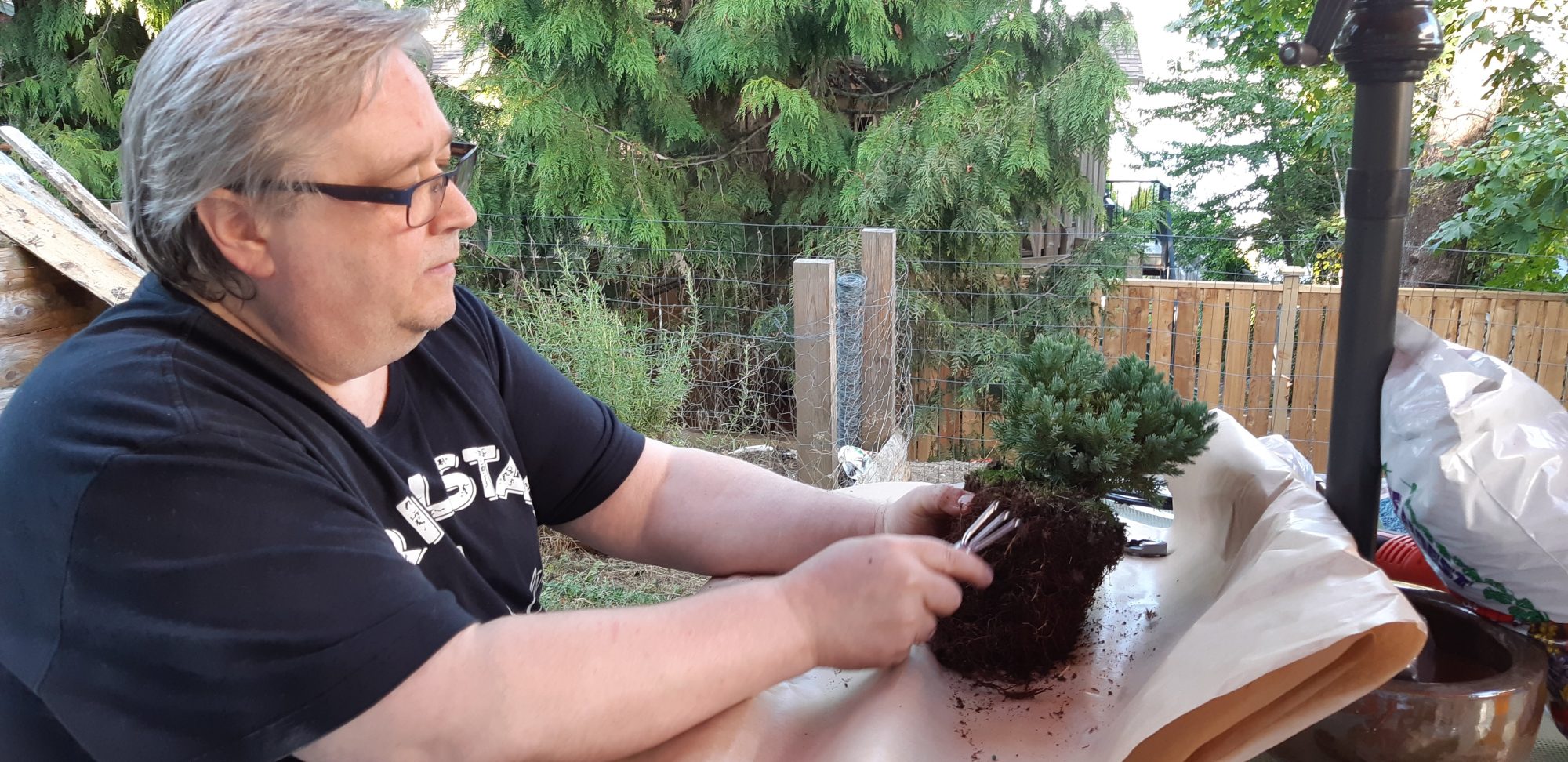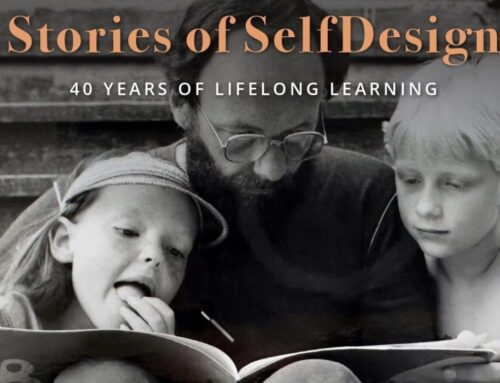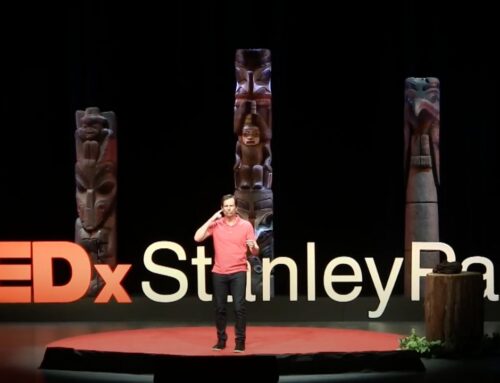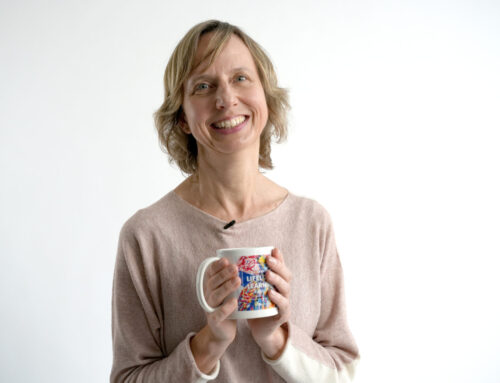If you were to give Michael Bender the choice of being smart, talented or kind, the SelfDesign educator says he would choose “kind” every time. “Kindness changes the world,” he says. “I’m not sure that anything else works by itself. It all has to come with kindness.”
It’s one of the things Michael admires most about the SelfDesign community.
“We have kind teachers. We have kind administrators and support staff. We have kind parents and kind learners. I think we foster that,” he says. “We’ve created a culture at SelfDesign where kindness is the norm.”
Michael joined SelfDesign in 2009. Originally from the U.S., he has mentored learners enrolled with SelfDesign Global, our program for learners and families who lived outside of British Columbia, and now has several roles with SelfDesign Learning Community, our kindergarten to grade 12 program for B.C. learners.
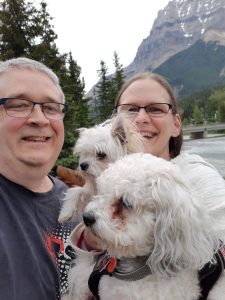 He is a learning consultant for learners in grades 10 to 12, a learning specialist and a theme facilitator. He is also SelfDesign’s MineCraft workshop teacher–liaison. In that role, he and SelfDesign administrative coordinator (and Michael’s spouse) Lori support the 60–100 SelfDesign learners who use the role-playing videogame platform each year to collectively negotiate how to design and build communities in SelfDesign’s own MineCraft world.
He is a learning consultant for learners in grades 10 to 12, a learning specialist and a theme facilitator. He is also SelfDesign’s MineCraft workshop teacher–liaison. In that role, he and SelfDesign administrative coordinator (and Michael’s spouse) Lori support the 60–100 SelfDesign learners who use the role-playing videogame platform each year to collectively negotiate how to design and build communities in SelfDesign’s own MineCraft world.
Michael ascribes the kindness found throughout SelfDesign to the organization’s approach to learning and community. When you place learners at the centre of their own learning journey, as SelfDesign does, you build in a requirement to listen to, to see and to notice each learner as and where they are in that specific time and space – and to accept them as they are.
“If you feel heard and seen and noticed,” he says, “you’re more likely to be kind.”
That insight is shaped from Michael’s own early experiences.
Witness to division and difference
As a child growing up in the American Deep South, Michael’s experience of education was often adversarial.
“Everything was either a protest or an argument or a contention or a clamping down by the administration,” he says. “It was all about control and authority of one type or another. It was competition between the teachers and me, between the teachers’ expectations and my abilities, between the administration and the way I wanted to express myself. I knew all my principals really, really well – I spent a lot of time in their offices.”
Local events added to the childhood perception that conflict was the norm. At the time, Black people in the American South were fighting for basic rights that white Americans routinely enjoyed.
Their struggle, however, was often met with resistance and sometimes with violence. The Mississippi city where Michael was born is notorious for being the place where three civil rights activists were murdered in the 1960s. With his own father working to help rebuild bombed-out churches in black communities in Mississippi, Louisiana, Oklahoma and Virginia, Michael says, “There’s no way those events wouldn’t impact my own life.”
Growing up on the outside, recognizing those on the outside
Young Michael was a bit of an outsider himself. He was deeply interested in technology, hand-building personal computers when the capacity of PC hard drives maxxed out at 10 megabytes and data was stored on five-inch floppy disks. In the first computer science course offered at his Virginia high school, he taught the teacher how to code.
Michael also played Dungeons and Dragons. The role-playing board game (referred to as “D&D” by its fans) was – and continues to be – popular among gamers and fantasy enthusiasts. Years before video games and decades before Game of Thrones, groups of players would gather to roll the game’s many colour-coded dice and embark on Tolkien-esque adventures as board-game elves, wizards and warriors.
Michael’s third passion was music. During high school, he played guitar in a rock-and-roll and blues band.
With those interests, Michael often felt that he didn’t fit in with his family or most of his peers at school. It was as if, he says, he spoke a different language.
However, those early experiences laid the groundwork for one of his most powerful experiences as a SelfDesign educator. It occurred when he connected with a new learner who felt similarly unheard and unseen.
“During one of our first Observing for Learning sessions, I asked him, ‘What are you interested in?’ And he didn’t share anything. So I asked, ‘What do you do with your free time?’ He said he didn’t have much free time. Then I asked, ‘Well, if you could do anything in the world – anything at all, no limitations whatsoever – what would you do?’ And he just shrugged. So I said, ‘Is there nothing that interests you? If you could change anything, what would you be doing?’ He then told me, ‘I’m not really that interesting.’”
Yet within six months of the learner enrolling with SelfDesign, that changed. At the end of that learning year, the learner reflected on having felt not very interesting.
“The biggest thing he mentioned in those reflections,” Michael says, “was that no one had really listened to him before. Whenever he talked about his interests – technology and games – a disconnect happened with the people around him. They didn’t understand what he was talking about.”
He says, “Why would we be interested in ourselves if no one else is interested? If we’re not seen or understood? By listening to this learner and translating his interests and passions so that his parents could recognize and understand his excitement, he began feeling visible and interesting again.”
In SelfDesign’s MineCraft workshop, learners in kindergarten to grade 9 create their own virtual worlds and experiences using building blocks, resources discovered on the site and their own creativity. Michael draws on his interest and experience in computers, coding and gaming to support the MineCraft workshop learners and those in the grades 10 and 11 Life Gamified and Virtual Dreamers themes.
Those learning opportunities provide safe spaces for learners interested in technology, coding and gaming to explore those interests, learn more, and to create and connect with others with similar passions.
“In gaming, it sometimes feels like it’s a bit of a secret language, but the kids and I speak it,” Michael says. “So in an odd way, I feel like I’ve found my people. And I hope that they feel the same way.”
Journey to SelfDesign
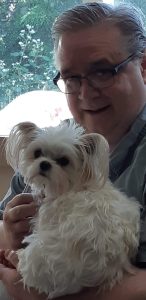
Teaching was not Michael’s first career choice. He graduated from university with a degree in social work, but no paid work in his field was available.
But he had been volunteering with a Richmond, Virginia agency that supported people who were homeless. There, he attracted the attention of the head of Virginia’s Department of Education, who offered him work as a middle school and high school substitute teacher.
Michael agreed to try it out.
Some of the schools where he was placed were in rough neighbourhoods, and his social work background was useful.
“The kids needed more than academics,” Michael says. “They were looking for community. They were looking for reassurance. They were looking for stability and a sense of belonging and of being cared about in some way by an adult.”
He found he connected easily with his students. Before long, he fell in love with teaching.
He returned to university for a Master’s degree in education while also working at a specialized school for autistic kids and kids who had been through the legal system. He later taught in Texas, then Los Angeles. He worked with undocumented children – the children of illegal immigrants – and also started teaching gifted students.
“I was teaching all these kids, each with their own learning needs and challenges, and looking at all the ways they were learning, and they were teaching me how they learned,” he says. “I would sit down with each of them, and we’d go through what they were interested in and how we could work that into school. Basically, I was putting together these wonderful, individualized learning plans before I even knew what a learning plan was.”
It was during that time that he became friends with a SelfDesign parent named Lori.
“She would tell me about what her kids were doing up here with SelfDesign,” he says. “I thought it was so awesome.”
He moved to B.C. in the late-2000s.
“What are you interested in?”
Michael says, “The most exciting words I ever say to a learner are, ‘What are you interested in?’ Because what comes out of their mouths in response is phenomenal. You find out so much about who they are as individuals and what drives them.”
He says a big part of what he does as a SelfDesign educator is listening.
“Listening is probably the most powerful thing we ever do as humans, and that kind of attention is an act of caring that goes beyond almost anything else we can do for each other.”
In listening, we hear, and when we hear, we see and notice. And out of that comes kindness.
And kindness can change the world.
Read more about SelfDesign’s grade 10 to 12 program
Read more about how learners connect with their peers at SelfDesign

